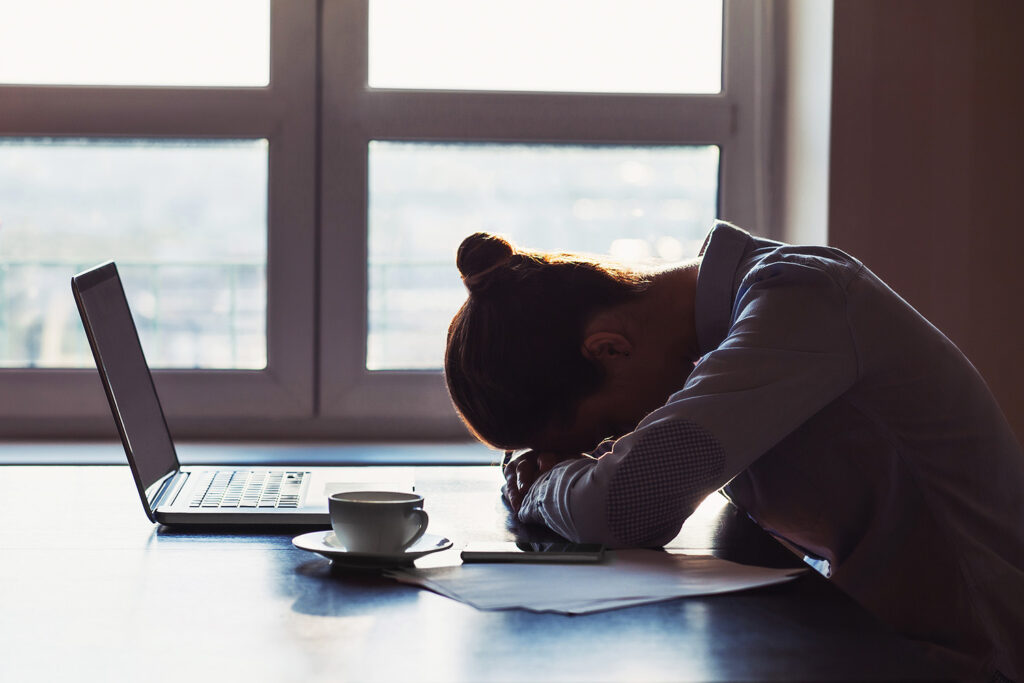Constantly fatigued? So are a lot of other people. In fact, forty percent of Americans report feeling tired on most days, and one out of every three adult women and men does not get enough sleep, according to the Centers for Disease Control and Prevention (CDC).
With our busy lifestyles and all the commitments we need to juggle nowadays, and tiredness can be expected. But it’s not wise to brush it off when it’s intense and you always feel exhausted. Persistent fatigue can be a sign that there is an underlying medical condition. Fortunately, that isn’t usually the case.
Here are 13 possible reasons for your constant fatigue…
It’s Hot in Your Bedroom

Is your bedroom warmer than it should be? A hot bedroom can make it difficult or even impossible to fall and stay asleep, which can be the reason behind your constant fatigue.
When a room is too hot (or cold), you will not be comfortable. The result will be tiredness. According to experts, the ideal room temperature for sleeping is between 60 and 67 degrees Fahrenheit.
Your Mattress/Pillow Is Old

Unless a mattress pops a spring or breaks, most of us will keep using it, but an old, worn-out mattress can leave you tossing and turning at night, causing fatigue. The same goes for your pillow.
To sleep better, replace your pillows yearly and your mattress every five to eight years. Since we spend about a third of our lives in bed (and need to sleep), it’s worth investing in a quality mattress and pillows.
You Spend a Lot of Time on Your Phone

That’s right. Your smartphone could be causing your fatigue. This is because exposing the eyes to light at night, particularly light in the blue spectrum suppresses melatonin production.
Solution: Avoid using your phone (and other electronic devices) during the evenings, especially just before bed. If you must use it, wear amber-colored glasses to counter the effects of the blue light.
You Drink to Sleep

Sure, sipping on some wine at the end of the day may help you to drift off to la-la land, but did you know that drinking alcohol in the evenings can also be the reason why you feel so tired each day?
Alcohol at night can affect the quality of your slumber by preventing rapid eye movement (REM) sleep. In addition, it increases visits to the bathroom and contributes to sleep apnea and snoring.
You Don’t Drink Enough Water

Research shows that the majority of Americans don’t drink nearly enough water each day. Are you guilty of the same? If so, then that could be why you’re experiencing constant tiredness.
Being dehydrated can have a significant impact on a person’s energy levels and mood. Moreover, a person doesn’t even have to be severely dehydrated to experience symptoms like fatigue.
You Have Chronic Fatigue Syndrome

Chronic fatigue syndrome (CFS) causes fatigue that is intense and long-lasting. It usually doesn’t improve with rest, and people with the condition often feel too tired to perform simple everyday activities.
The cause of chronic fatigue syndrome is to date unknown. Experts believe that it may be triggered by viral infections, stress, hormonal imbalances, and Immune system problems.
You Have Sleep Apnea

With sleep apnea, breathing typically stops and starts repeatedly during sleep, causing sufferers to snore loudly and awaken regularly. This can make you feel tired and irritable even after a full night’s sleep.
Sleep apnea is a problematic sleep disorder that can lead to a variety of health problems. It occurs when there is a blockage of the upper airway and/or the brain fails to signal the muscles that control breathing.
You’re Anemic

Anemia is a common blood disorder in which the number of healthy red blood cells in the body is too low. Red blood cells carry oxygen to all the body’s tissues. Thus, anemia can make you feel extremely tired.
The number one cause of anemia is iron or vitamin deficiency. This can result from pregnancy, heavy menstrual bleeding, an ulcer, or regular use of over-the-counter pain relievers like aspirin.
You Have a B12 Deficiency

Vitamin B12 deficiency, a cause of anemia, can cause fatigue and other symptoms. Symptoms occur because there isn’t enough vitamin B12 to produce red blood cells for transporting oxygen to the body.
Deficiencies of B12 are most common in the elderly. They can develop if a person doesn’t get enough of the vitamin from their diet or if they aren’t able to absorb enough of it from the foods that they eat.
You’re Depressed

It’s normal to feel down from time to time. But when you’ve got clinical depression, the intense sadness can affect how you think and handle daily activities such as eating, working, and sleeping.
Though many don’t acknowledge it, depression is a serious disorder. Without treatment, the symptoms can last for weeks, months, and even years. One of those symptoms is extreme fatigue.
You Have Thyroid Disease

The thyroid is a gland at the base of the neck that produces a hormone. This hormone helps control many body processes, including how fast your heart beats and the rate at which you burn calories.
When you have thyroid disease, the gland either makes too much thyroid hormone (hyperthyroidism) or too little of it (hypothyroidism), both of which can cause you to feel tired constantly.
You Have Diabetes

Statistics by the CDC show that 29.1 million people in the United States are living with diabetes. Yet, only 21 million people know that they have the disease. A whopping 8.1 million are yet to be diagnosed.
In diabetics, the body’s ability to produce or respond to insulin is impaired. Without insulin to help get glucose to the cells to be used for energy, extreme fatigue can occur. It is often an early symptom.
You’ve Got Fibromyalgia

Fibromyalgia is a disorder characterized by widespread muscle and bone pain that accompanies fatigue, among other symptoms – severe fatigue that typically disrupts a person’s daily life.
With fibromyalgia, you may feel extremely tired during the day. You may also wake up frequently from sleep during the night. Sufferers often do not recall experiencing any sleep disruptions.







